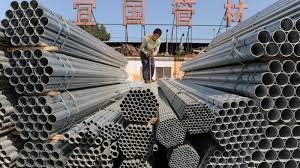Globaltraded.com — The European furniture market stands as one of the most lucrative and competitive arenas for exporters worldwide. For businesses in developing countries, this market offers immense potential, but breaking into and thriving within it requires a nuanced understanding of European preferences, regulatory frameworks, and the complexities of the global supply chain. To succeed, exporters must adopt a combination of strategic positioning, compliance with rigorous standards, and innovative approaches to cater to a discerning clientele.
Understanding the European Furniture Market
Europe’s furniture market is characterized by diversity in tastes, sustainability concerns, and a robust regulatory framework. Northern Europe, for instance, tends to favor minimalist and functional designs, as seen in Scandinavian styles, while Southern Europe leans toward ornate and traditional aesthetics. Furthermore, the continent’s consumers increasingly demand eco-friendly products, making sustainability a key consideration.
According to a 2023 report by Statista, the European furniture market’s revenue exceeded €120 billion, with Germany, the United Kingdom, and France leading in consumption. The growth of e-commerce platforms, such as Wayfair and IKEA’s online store, has further expanded opportunities for international suppliers. However, with opportunities come challenges, including fierce competition from established brands and evolving consumer preferences.
Key Strategies for Success
- Mastering Quality and Design
European consumers are exacting in their demand for quality and aesthetic appeal. Exporters must invest in skilled craftsmanship and innovative design to stand out. Collaborating with local designers or conducting market research to understand current trends can ensure products resonate with the target audience.
For example, mid-century modern furniture remains a favorite in Western Europe, while multi-functional furniture gains popularity in urban areas with limited living space. Incorporating these trends into your offerings can provide a competitive edge.
- Sustainability as a Selling Point
Environmental awareness is a critical factor in European purchasing decisions. Furniture made from sustainably sourced materials, such as FSC-certified wood, or incorporating recycled components, appeals to eco-conscious consumers.
Adopting transparent supply chains and highlighting sustainability certifications in marketing materials can enhance credibility. For exporters from developing nations, emphasizing the use of local, renewable resources can further differentiate their products.

- Compliance with Regulations
European markets enforce stringent regulations regarding safety, sustainability, and labeling. Exporters must ensure compliance with standards such as the European Union’s REACH (Registration, Evaluation, Authorisation, and Restriction of Chemicals) regulation and the CE marking requirements.
Non-compliance can result in penalties or a tarnished reputation. Partnering with legal experts or certification agencies familiar with European standards can streamline the process of meeting these requirements.
- Building Strong Distribution Networks
Establishing a robust distribution network is essential for reaching European consumers. This involves identifying reliable importers, wholesalers, and retailers. Attending trade shows like the Milan Furniture Fair or IMM Cologne can help exporters connect with key industry players and gain exposure.
Additionally, partnering with established e-commerce platforms can expand market reach. Amazon Europe and Etsy, for example, provide accessible avenues for small to medium-sized enterprises to sell directly to consumers.
- Competitive Pricing Without Compromising Quality
While price sensitivity varies across Europe, value for money remains a universal expectation. Exporters must strike a balance between competitive pricing and maintaining high standards of quality. Leveraging lower production costs in developing countries can offer a pricing advantage, but cutting corners on quality can be detrimental.
- Cultural Adaptability and Branding
Tailoring branding and marketing strategies to align with cultural nuances is vital. For instance, in German markets, transparency and durability are emphasized, whereas in Italy, luxury and style take precedence.
Developing region-specific marketing campaigns that highlight unique aspects of the products can enhance resonance with local consumers. A story-driven approach that emphasizes artisanal craftsmanship or cultural heritage can also strengthen brand identity.
- Leveraging Technology and Innovation
Technology can play a pivotal role in enhancing competitiveness. From adopting Computer Numerical Control (CNC) machinery for precision manufacturing to utilizing 3D visualization tools for showcasing products online, investing in technological advancements can streamline operations and appeal to tech-savvy consumers.
- Mitigating Logistical Challenges
Efficient logistics are a cornerstone of successful export operations. Developing countries often face challenges such as inadequate infrastructure or high shipping costs. Exporters must forge partnerships with reliable logistics providers and explore cost-effective shipping solutions.
Warehousing within Europe can also reduce delivery times and costs, improving customer satisfaction. Free trade agreements or preferential trade schemes between the exporter’s country and the EU can further minimize barriers.
- Investing in Market Research
Thorough market research is indispensable for identifying opportunities and potential pitfalls. Understanding consumer behavior, competitive landscapes, and emerging trends enables exporters to adapt their strategies effectively.
Surveys, focus groups, and industry reports can provide valuable insights. Monitoring social media platforms and online reviews can also offer a glimpse into consumer sentiment.
- Nurturing Long-Term Relationships
Succeeding in the European furniture market requires fostering enduring relationships with distributors, retailers, and end consumers. Regular communication, consistent quality, and responsive after-sales service can build trust and loyalty.
Participation in industry events and maintaining an active presence in European markets signals commitment and reliability.
For exporters from developing countries, the European furniture market presents both challenges and unparalleled opportunities. By prioritizing quality, sustainability, and adaptability, these exporters can carve a niche in one of the world’s most sophisticated consumer markets.
From embracing eco-friendly practices to leveraging digital platforms, the strategies outlined above offer a roadmap to success. With careful planning and execution, furniture exporters from emerging economies can not only enter the European market but thrive within it, proving that innovation and determination can overcome even the most formidable barriers.























































